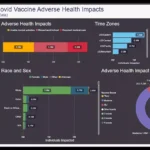JP Morgan Chase, a leading global financial institution, is venturing into a new domain by monetizing its customer data, sparking concerns over privacy breaches. Through Chase Media Solutions, the bank is now offering advertisers access to its treasure trove of customer spending data, enabling targeted advertising campaigns. This move raises critical questions about the sanctity of customer privacy and the ethical boundaries of data usage in the banking sector.

Exploiting Customer Trust
Chase's strategy hinges on utilizing the detailed transactional data of its 80 million customers to create personalized advertising opportunities for businesses. This approach has ignited a debate over the thin line between offering personalized services and exploiting customer data. Critics argue that customers are unwittingly becoming the product, their financial behaviors packaged and sold in the name of targeted marketing, potentially without their explicit consent.
Ethical Implications and Backlash
The backlash against Chase's monetization of customer data reflects broader concerns about how financial institutions handle sensitive information. Customers expect their banks to protect their financial data, not use it as a commodity for advertising revenue. This monetization strategy, while lucrative for Chase and its advertising partners, could erode trust and raise questions about the bank's commitment to customer privacy.
The Need for Transparency and Consent
As financial institutions like Chase delve into data monetization, the need for transparent communication and explicit consent becomes paramount. Customers should be fully aware of how their data is being used and should have the option to opt out of such schemes. The banking sector's move towards data-driven revenue streams necessitates a balance between innovation and the ethical responsibility to protect customer privacy.
A Call for Stricter Regulations
Chase's entry into targeted advertising using customer data underscores the urgent need for stricter regulations in the financial industry's use of personal information. Ensuring customer privacy requires robust safeguards and a commitment to ethical standards, without which banks risk losing customer trust and facing potential regulatory scrutiny.
Potential Long-term Repercussions for Customer Relationships
The long-term implications of Chase's data monetization could extend beyond immediate privacy concerns, potentially altering the fundamental relationship between banks and their customers. If financial institutions prioritize profit over privacy, they risk compromising the trust that is the cornerstone of their customer relationships. This shift towards viewing customers' financial behaviors as a marketable asset could lead to a broader disillusionment with the banking sector, prompting customers to seek alternatives that prioritize data protection and privacy.
Navigating the Future of Financial Data Use
The controversy surrounding Chase's use of customer data for targeted advertising highlights a critical juncture for the financial industry. As banks increasingly look to data as a revenue source, they must navigate the delicate balance between innovative business models and the imperative to safeguard customer privacy. The future of banking may hinge on developing models that provide tangible benefits to customers through the use of their data, while also offering robust privacy protections and transparency to maintain trust and compliance with evolving regulatory standards.

Carl Riedel is an experienced writer and Open Source Intelligence (OSINT) specialist, known for insightful articles that illuminate underreported issues. Passionate about free speech, he expertly transforms public data into compelling narratives, influencing public discourse.













